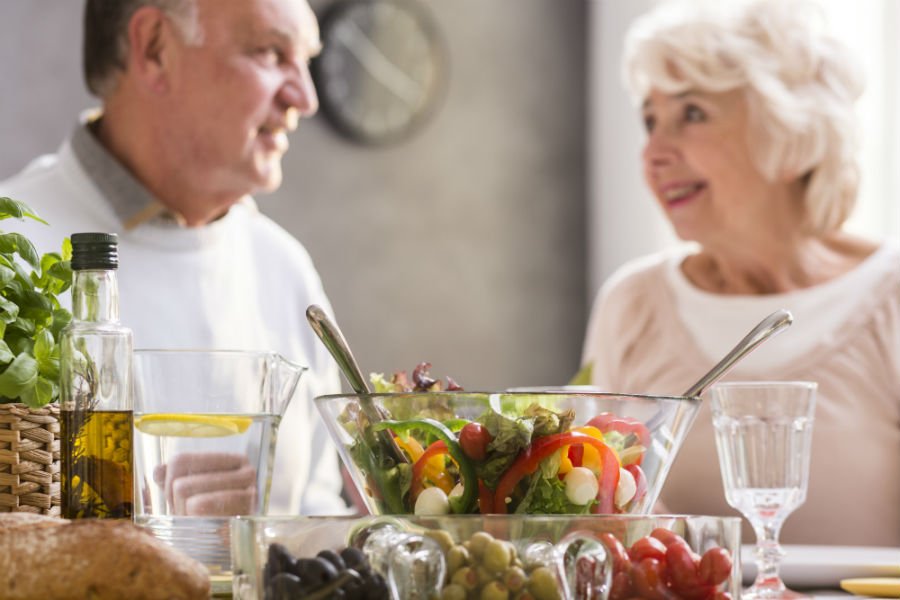Healthy Eating for Senior Living

The components of a balanced daily diet should be used as a guide. It is not a rigid diet plan, but a plan that emphasizes variety, proportions and moderation. Our residents are encouraged to eat healthy every day.
Eating Healthy
- Fruits and vegetables. Eat more dark green vegetables like leafy greens or broccoli and carrots and sweet potatoes.
- Vary Protein choices with more fish, beans and peas.
- Eat at least 3 ounces of whole-grain cereals, breads, crackers, rice or pasta. Whole grains whenever possible.
- For elderly women, osteoporosis is a concern. Women will want to consume doctor recommended amounts of calcium and vitamin D. Those who don’t care for milk can try milk-based soups, puddings, custards, ice cream or juice fortified with calcium.
The Taste of Food
Sour and sweet are the two sensory sensations which usually remain. Medications can also affect taste buds. Some medications leave a metallic taste and others leave a bitter taste in the mouth.
Older people will sometimes overload their food with salt to compensate or they may lose interest in their food. Therefore, it is important for seniors to try new foods! As time passes, a food previously disliked may become a favorite. By using herbs, spices, lemons, limes and natural seasonings, the flavors can be more pronounced and enjoyed.
Drinking Enough Water
Exercise
Suggested exercises include walking, swimming, Tai chi, bicycling, gardening and supervised weight training. Physicians should be consulted before beginning any exercise routine and exercises should be performed under supervision.
Agility, endurance, strength, flexibility and balance are all improved by exercise. It also reduces the likelihood of falling.
Moderate exercise puts weight on your bones and helps to maintain bone density. Healthy eating and regular exercise are investments to achieve a long term, high quality of life.